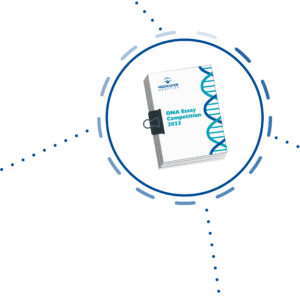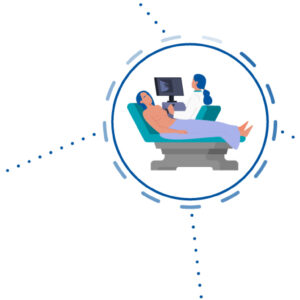Scientific Background
Combined immunodeficiencies (CID), including severe combined immunodeficiencies (SCID), are a heterogeneous group of genetic diseases characterized by a deficiency in and/or a malfunction of T cells. In SCID, a distinction is made between diseases that also have a reduced number of circulating B cells (T-B-SCID, about 35% of SCID patients) and SCID forms in which B cells are present (T-B+SCID, about 65% of SCID patients), although B cell function is always impaired (even where there is normal development of these cells) due to the lack of T cell help for the antibody response. In addition, the number of NK cells may be reduced. While in CID, residual functions of the immune system remain intact and CID patients can be relatively healthy, SCID is lethal without a blood stem cell transplant before the age of two. Clinical manifestations of SCID usually occur within the first 6 months of life. They are usually protracted infections of the gastrointestinal tract and respiratory tract, severe varicella, complicated EBV, CMV or adenovirus infections or persistent thrush. In some cases, the persistence of maternal T cells, which are not rejected and can proliferate in SCID patients, can lead to symptoms of graft-versus-host disease (GvHD).
SCID disease mainly affects genes whose products are involved in the maturation of lymphocytes. These include cytokine receptors and their signal-transducing molecules, which are essential for the early differentiation and maturation of lymphocytes, as well as proteins that are necessary for the formation and function of B and/or T cell receptors. The most common form of SCID is caused by mutations in the IL2RG gene on the X chromosome and accounts for about 80% of SCID cases in male patients. Other more frequently affected genes (autosomal recessive) are RAG1/RAG2, DCLRE1C (Artemis), ADA and JAK3 (in total up to 40% of all SCID cases). Hypomorphic mutations in SCID-typical genes, which allow residual function of the affected protein, can lead to atypical SCID, where the clinical phenotype is currently not clearly defined. The course of the disease is not as severe as in typical SCID, and the diagnosis should also be considered in older children and even in adult patients. Hypomorphic mutations in some SCID-associated genes can lead to Omenn syndrome (OS), an inflammatory disease similar to GvHD. In addition to typical SCID symptoms, OS patients show additional inflammatory symptoms such as lymphadenopathy, hepatosplenomegaly, generalized erythroderma and alopecia. The use of NGS for the simultaneous analysis of CID/SCID-relevant genes (gene panel diagnostics) can be helpful in making an early genetic diagnosis.
References
Bousfiha et al. 2018, J Clin Immunol 38:129 / Picard et al. 2018, J Clin Immunol 38:96 / Routes et al. 2014, J Clin Immunol 34:398 / Felgengreff et al. 2011, Clin Immunol 141:73 / Fischer et al. 2005, Immunol Rev 203:98 / Buckley et al. 2004, Annu Rev Immunol 22:625 / Muller et al. 2001, Blood 98:1847





















